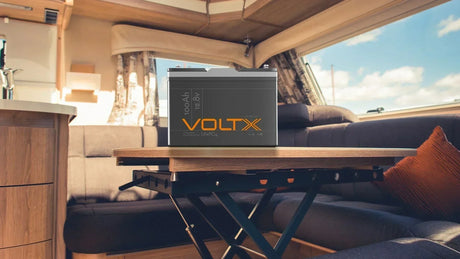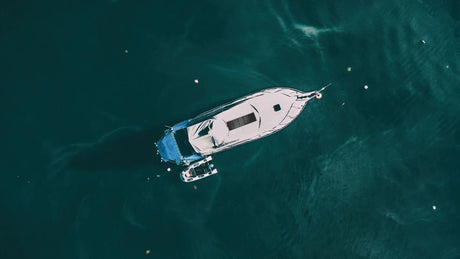Gone are the days when camping and ˜roughing it up' means you must go on for days without modern conveniences like LED lights and a fridge, especially if you are travelling to a remote location with kids. You've got to bring portable solar panels to ensure that your family still stays perfectly comfortable even when you are surrounded by nature.
Whilst folding solar panels might be a bit pricier than your old generator, they have the advantage of being lightweight, quiet, and most importantly, the energy is free and renewable. These all mean that you'll have some extra space for cargo (if you're towing the generator) in your truck or RV, appreciate nature's hums a bit more, and will never have to pay for battery juice or chargers in your life.
Features of the Best Portable Solar Panels
As cliche as it might sound, not all portable solar panels are alike. However, the best portable solar panels do share some similar features. If you are thinking of purchasing folding solar panels for your next great camping trip, here are some of the things that you should look out for:
Price
The price of an item unquestionably factors into whether you purchase an item or not. However, the biggest (and costliest) mistake that you'll ever make is to buy the cheapest portable solar panel you can find and still hope for the best. Whilst one can concede that, for some items, the most expensive brand does not necessarily guarantee quality, the very same cannot be said of solar panels. In fact, when it comes to purchasing folding solar panels, you get exactly what you pay for. You must realise that the cells used to manufacture those panels are not cheap. When you go for the less expensive panels, you've got to consider that those are most probably less sturdy and less weather-resistant than the more expensive ones. Of course, this only means a shorter life span for your new purchase. So, whilst buying pricier portable solar panels may initially hurt your wallet, its return on investment more than doubles the initial outlay.
Cell Quality
Cells are the main reason why quality solar panels are expensive. The photovoltaic cells used to manufacture them greatly vary, depending on the target energy efficiency. There are three common types of solar cells: monocrystalline, polycrystalline, and amorphous cells (also known as Thin Film). Monocrystalline silicon is the most common type, as approximately 90% of modern photovoltaics are made of it. It is also the most expensive because of its energy efficiency. You might recognise a solar panel made of monocrystalline silicon cells, as they are known for their characteristic look. These cells work best if left directly under the sun. However, they can potentially breakdown in poor environmental conditions, which might be a problem if you are camping out. It can go haywire if a panel gets partially covered with either dirt or shade. Polycrystalline silicon, on the other hand, costs way less than its monocrystalline counterpart. It is usually identified by its unique speckled crystal blue colour. Its low tolerance for heat makes it an inappropriate solar panel cell under the blistering Aussie sun. This isn't to say, though, that polycrystalline is less energy efficient; it's just that the high temperature can subsequently shorten the lifespan of your portable solar panels. Lastly, solar panels that use thin films as photovoltaic cells are cheap, mainly because these are mass produced and are far less expensive to manufacture than the average solar cell. It also means, though, that they have an even shorter lifespan than the polycrystalline, even without being exposed to high temperatures. In short, the best solar panels are usually made with monocrystalline silicon cells because of their high energy efficiency and weather-resistance. However, there are still some who opt for those made of thin film since they are more flexible and less fragile than the pricier monocrystalline.
Long Product Warranty
You'll have an idea about how confident a manufacturer is with their product based on how long their product warranty is. If a solar panel manufacturer or seller provides a service or product warranty of just about six months, you will be better off shopping elsewhere. You will also need to check what the warranty covers. Is the 25-year warranty for the entire panel or just the cells? Does the warranty include normal maintenance costs? Would the replacement parts, labour, and transit costs be covered by the warranty? If these questions are not answered even after you read the fine print, then you really should look at products from another store.
Auxiliary Equipment
It is not enough to simply purchase a solar panel. You'd need to buy the complete setup for it to work. So, aside from the panel, you would also need a deep-cycle auxiliary battery and a charge controller, also known as solar regulator. These two are necessary because you would undoubtedly need a feasible storage space for all your accumulated solar power. It is especially useful when you need energy during low light conditions, such as at night or when it's raining. You just have to be careful with the charging of the batteries. A common practice is to let it go down to 30% battery capacity before charging it to prolong its life. Portable solar panels are not meant to charge fully discharged batteries. In addition, if you want to bring an electrical household appliance when you go camping, then you need to purchase a 240V AC inverter to consistently convert the battery's 12V DC power to the desired 240V. To determine how much power you'll be needing on your camping trip, you need to make a list of all the electrical appliances you're planning to bring, and calculate the overall power required to run them per day. If in doubt, you can always check the labels to get a rough idea of the exact power draw each appliance might need.
Conclusion
Purchasing portable solar panels can be a bit tricky. You would need to have a basic understanding of its principle and construction before even thinking of buying one. It also helps when you buy folding solar panels from a reliable store like Outbax. They offer not only the best camping supplies and gear; they will also gladly answer all your questions on the best portable solar panels for your needs.





